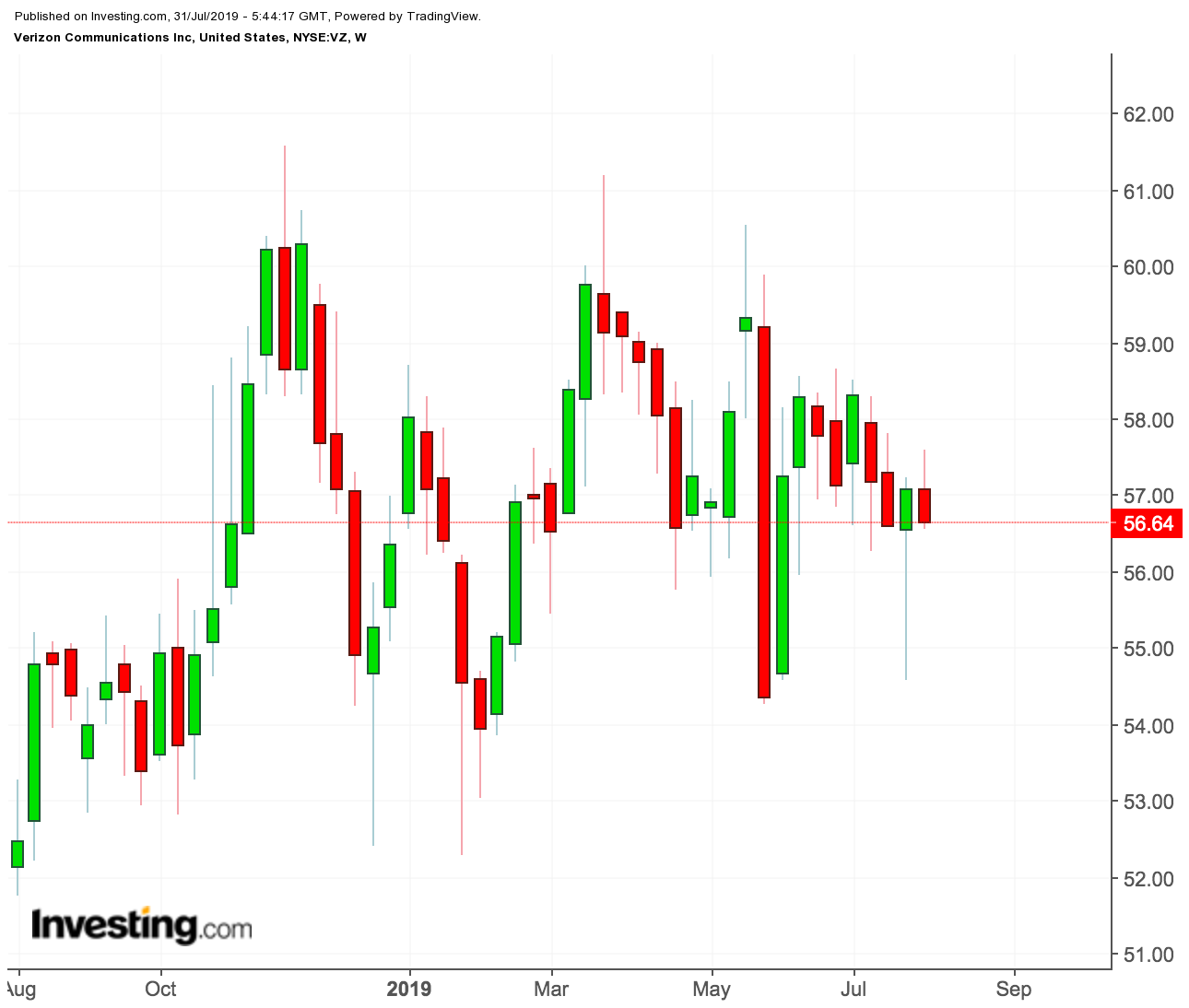- Reports Q2 2019 results on Thursday, Aug. 1, before the open
- Revenue expectation: $32.41 billion
- EPS expectation: $1.2
It’s not a good time to be excited about telecom companies like Verizon (NYSE:VZ). The consumer shift to internet-based entertainment providers has accelerated cord-cutting, pushing their revenues from cable and media businesses into a perpetual decline. In addition to that, cut-throat competition in the wireless market is also hurting their margins.
These headwinds are likely to depress Verizon's Q2 earnings when it reports tomorrow. They've already weighed heavily on the shares of the U.S.'s largest wireless carrier, which have significantly underperformed the broader market this year. Verizon stock has gained just 2% while the S&P 500 hit a new record and is up more than 20%. The shares closed down 1.3% yesterday at $56.64.

To survive in this challenging environment, the leading players in the U.S. are trying different strategies. AT&T (NYSE:T), for example, completed an $85-billion merger with Time Warner last year as part of its push to become a modern media giant, betting big on its coming video-streaming service.
Last week, the U.S. Justice Department approved the acquisition by T-Mobile U.S. (NASDAQ:TMUS) of Sprint Corp., clearing one of the biggest hurdles to a takeover that will consolidate the wireless industry and limit the number of players in the game.
Verizon’s Different Approach To Growth
Verizon is taking a different approach though. Instead of bulking up its balance-sheet with mega deals, Verizon has been focusing on improving its infrastructure and cutting costs. The company’s new CEO Hans Vestberg has, so far, avoided the big entertainment acquisitions that peers like AT&T and Comcast (NASDAQ:CMCSA) have pursued.
Instead, the carrier has made smaller bets focused on enhancing its strategy to quickly improve its network. Due to its timely acquisition of Straight Path Communications last year, Verizon is ahead in the race to build a fifth-generation, or 5G network, part of an industry-wide effort to increase speeds and open up new revenue sources.
5G wireless networks are crucial for the success of some futuristic applications, such as driverless cars, smart homes and remote surgical procedures—and this is one area where Verizon is firmly at the head of the pack.
In October, Verizon got a head start in introducing residential broadband and TV services using 5G technology in four cities that are serving as a testing ground for the company. It plans to roll out the service in parts of more than 30 cities before the end of the year.
This slow but steady approach isn’t generating too many headlines for the carrier. However, it's clearly helping keep the growth momentum going. In the first quarter, Verizon posted an 11% jump in net income to $5 billion from $4.5 billion a year earlier. Quarterly revenue ticked up about 1% to $32.1 billion.
The company is in the process of cutting $10 billion in costs by 2021. By the end of Q1, Verizon had already cut $3 billion in spending, helped by a voluntary severance program and expense savings.
Bottom Line
Verizon’s earnings report tomorrow may not provide many good reasons to buy its stock, given the tough operating environment for telecoms. But, in our view, the downside risk during this time of distress is also limited when it comes to Verizon. With its focused growth strategy, strong balance-sheet, growing dividend, Verizon is a solid—and comparatively safe—pick for long-term investors.
